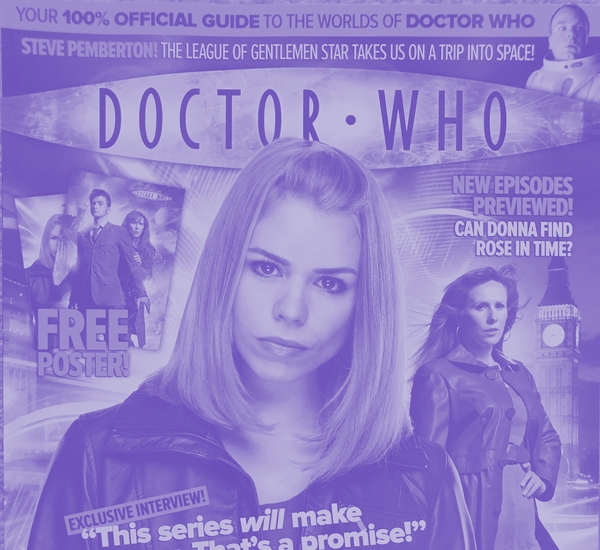Edinburgh, 1759. While Benjamin Franklin flees the city, the Doctor and Martha are pursued through the streets by the walking dead, and by ruthless soldiers. With the Doctor holed up in a derelict church and Martha falling into the hands of the villainous Monro clan, who can save the world from the many hands of death’?
After a wildly exciting opening, featuring a Doctor fighting a revivified corpse on the roof of a careering stagecoach, The Many Hands develops into a full-blooded sci-fi horror story complete with plenty of memorably eerie touches including an army of the living dead rising from the foaming waters of the loch, and the Doctor taking charge of a group of traumatised and besieged survivors in a decaying churchyard. If anything, Martha gets an even scarier ride as she’s locked in a dungeon with disembodied, spidery hands, before getting chased through the vaults of Edinburgh. And though some of these are hoary old horror cliches, it’s easy to overlook because writer Dale Smith uses them with such gusto and it’s easy to get caught up in the thrill of the adventure. Smith’s choice of location cleverly illustrates the conflict between scientific reason and superstition at the heart of the story, with primitive electric batteries and Martha’s medical training pitched against zombies in the kind of juxtaposition that Doctor Who does so well.
Cradle of the Scottish Enlightenment, Edinburgh itself evokes this clash, with grand new buildings of commerce and science literally built over the dark, haunting alleys of the old town. The result is a novel that has the same vividly memorable counterpoints as the 1975 TV story Pyramids of Mars. The villains of the piece are an odd bunch, all driven by a desire to achieve a sort of immortality, and willing to sacrifice human beings in order to do so. And however monstrous both the Monros and the Kith creature are, they’re also strangely pitiful - so much so that the Doctor is unusually quick to offer himself as a sacrifice. It’s a slightly off-kilter moment for this Doctor, who’s previously been a picture perfect version of David Tennant. However, Smith gives us a brilliant take on Martha, whose courage and compassion - and her desire not to let the Doctor down - places her in danger, but who’s smart enough to think her way out of her predicaments. The other characters fall very firmly into the status of ‘supporting’, with the exception of the frighteningly uptight McAllister, a very good sketch of a particular military type.
The Many Hands arguably plays it safe by drawing so heavily upon established horror imagery, and it certainly doesn’t break any new ground. Equally, though, Smith doesn’t fumble any of the set pieces and the end result is a book that feels polished and confident even if it’s not especially novel. MM
